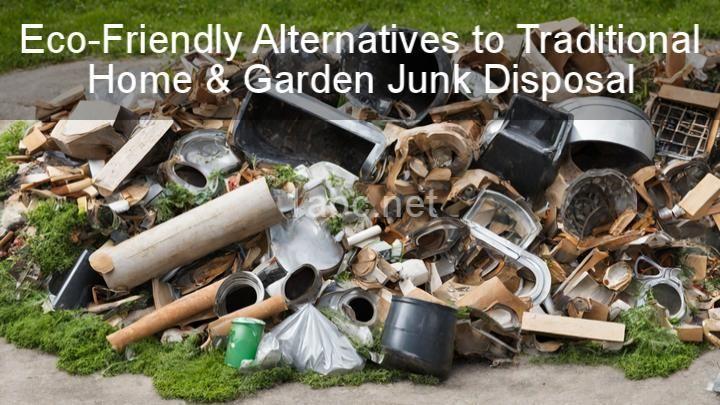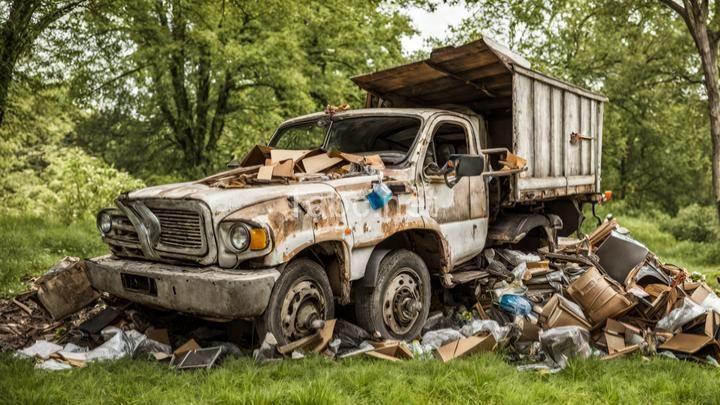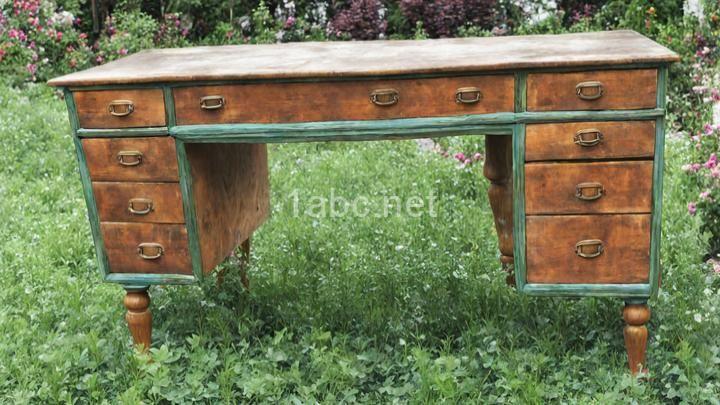Eco-Friendly Alternatives to Traditional Home & Garden Junk Disposal

Making a Sustainable Difference
Introduction:
Hello and welcome to our blog! We are excited to dive into the world of eco-friendly alternatives for home and garden junk disposal. In today's fast-paced world, it is crucial to prioritize environmentally-friendly practices in every aspect of our lives. Traditional disposal methods have a negative impact on our planet, but we have the power to make a change. By making small adjustments to our habits, we can significantly reduce waste and contribute to a cleaner, healthier future. In this blog post, we will explore various eco-friendly approaches to junk disposal, ranging from the 3 R's (Reduce, Reuse, Recycle) to professional junk removal services. Let's get started!
I. Reduce, Reuse, Recycle:
The 3 R's—Reduce, Reuse, Recycle—serve as the foundation for sustainable junk disposal. By following these principles, we can minimize waste and make a positive impact on the environment. One of the simplest ways to reduce waste is by being mindful of our purchases. Before buying new items, ask yourself if you truly need them. Consider borrowing items from friends or family, or exploring the option of renting instead of purchasing.
In addition to reducing waste, reusing items is an excellent way to minimize our environmental footprint. Get creative and find new purposes for old objects. For example, glass jars can be transformed into storage containers, and old t-shirts can be made into reusable grocery bags. By reusing items, we not only save money but also reduce the demand for new products, which in turn reduces the resources consumed during production.
Recycling is a crucial part of the 3 R's. It is important to educate ourselves about the recycling practices in our area and follow proper guidelines. Research local recycling centers and familiarize yourself with the items that can and cannot be recycled. By recycling responsibly, we can divert waste from landfills and help conserve valuable resources.
II. Composting:
Composting is a fantastic way to dispose of organic waste from our gardens and kitchens. Instead of throwing these materials away, we can convert them into nutrient-rich compost that benefits our plants and reduces landfill waste. Composting not only enriches soil fertility but also reduces the need for chemical fertilizers, promoting a healthier ecosystem.
Starting a compost pile or using compost bins is relatively simple. Choose a suitable location in your garden or backyard, ensuring it is easily accessible but also well-drained. Layer your compost pile with a mixture of green (nitrogen-rich) and brown (carbon-rich) materials. Green materials include kitchen scraps, grass clippings, and fresh plant trimmings, while brown materials consist of dried leaves, twigs, and shredded paper. Remember to turn your compost pile regularly to facilitate decomposition.
It's important to be aware of what can and cannot be composted. Avoid adding meat, dairy, oily foods, and pet waste to your compost pile, as they can attract pests or spread diseases. Instead, focus on adding fruit and vegetable scraps, coffee grounds, tea leaves, and yard waste. By following these guidelines, you'll be well on your way to creating nutrient-rich compost for your garden.
III. Donation & Upcycling:
Donating unwanted household items is an excellent alternative to throwing them away. Instead of cluttering landfills, these items can find new homes and bring joy to others. Research local charities or organizations that accept donations and find out what items they are currently in need of. Whether it's clothing, furniture, or kitchenware, there is always someone who can benefit from your generosity.
Upcycling is another creative way to dispose of junk responsibly. Instead of discarding old furniture or materials, consider giving them a new lease on life. With a little imagination and some DIY skills, you can transform these items into something unique and useful. Upcycling not only reduces waste but also allows you to showcase your creativity. Look for inspiring upcycling ideas online or visit local thrift stores for inspiration.
IV. Responsible Hazardous Waste Disposal:
When it comes to hazardous waste, such as batteries and paints, it is crucial to prioritize proper disposal. These materials contain harmful substances that can contaminate the environment if not handled correctly. Educate yourself about the dangers associated with improper disposal and research local collection centers or events designed specifically for hazardous waste disposal.
By responsibly disposing of hazardous waste, we can prevent these substances from entering landfills and contaminating water sources. Protecting our environment and the health of future generations should be our utmost priority. Take the time to familiarize yourself with safe disposal methods and encourage others to do the same.
V. Professional Junk Removal Services:
If you find yourself overwhelmed by junk or unable to dispose of certain items responsibly, consider hiring professional junk removal services. Many companies specialize in sustainable waste management practices, ensuring that items are properly sorted, recycled, or disposed of in an environmentally-friendly manner. By utilizing these services, you can have peace of mind knowing that your junk is being handled responsibly and contributing to a cleaner planet.
Conclusion:
Congratulations on reaching the end of this blog post! We hope you found these eco-friendly alternatives to traditional home and garden junk disposal helpful and inspiring. Remember, every small change we make in our daily lives can have a significant impact on the planet. By adopting the 3 R's, composting, donating, upcycling, responsibly disposing of hazardous waste, and utilizing professional junk removal services, we can all contribute to a cleaner, healthier future. Together, let's make a sustainable difference and protect our planet for future generations.
FREQUENTLY ASKED QUESTIONS
What is [Eco-Friendly Alternatives to Traditional Home & Garden Junk Disposal]?
[Eco-Friendly Alternatives to Traditional Home & Garden Junk Disposal] refers to sustainable methods that can be used to dispose of unwanted items from your home and garden in an environmentally responsible way. Instead of throwing these items in the trash, which ultimately ends up in landfills, eco-friendly alternatives focus on recycling, reusing, and repurposing as much as possible. These alternatives can include composting organic waste, donating or selling usable items, upcycling materials into new products, and utilizing local recycling programs. By choosing eco-friendly disposal methods, you can reduce your carbon footprint and contribute to a more sustainable future.
How does [Eco-Friendly Alternatives to Traditional Home & Garden Junk Disposal] work?
Eco-Friendly Alternatives to Traditional Home & Garden Junk Disposal is a comprehensive guide that provides alternative ways to dispose of your home and garden waste in an environmentally friendly manner. By following the guidelines provided in the guide, you can reduce your reliance on traditional methods of waste disposal, such as landfills or incinerators, which can be harmful to the environment. The guide offers solutions like composting, recycling, repurposing, or donating your items instead of throwing them away. These alternatives help minimize your carbon footprint and promote sustainability. The guide also provides tips on how to properly implement these alternatives in your daily life, ensuring that you make a positive impact on the environment while efficiently managing your home and garden waste.
What are the benefits of using [Eco-Friendly Alternatives to Traditional Home & Garden Junk Disposal]?
Using eco-friendly alternatives to traditional home and garden junk disposal offers several benefits, including:
- Environmental conservation: By choosing eco-friendly disposal methods, you contribute to the preservation of our planet's natural resources and reduce the pollution and waste that typically result from traditional disposal methods.
- Reduced carbon footprint: Eco-friendly options often involve recycling, reusing, or composting materials instead of sending them to landfills. This helps to reduce greenhouse gas emissions and mitigates your overall carbon footprint.
- Healthier surroundings: By opting for eco-friendly disposal methods, you minimize the release of harmful chemicals and pollutants into the environment. This contributes to cleaner air, water, and soil, creating a healthier living environment for you and your community.
- Cost savings: In some cases, eco-friendly alternatives can save you money compared to traditional disposal methods. For example, composting organic waste can provide nutrient-rich soil for your garden, eliminating the need to purchase expensive fertilizers.
- Promotion of sustainable practices: By actively choosing eco-friendly alternatives, you support and encourage the use of sustainable practices within your community. This can lead to broader adoption of environmentally friendly habits and create a positive impact on a larger scale.
Remember, choosing to dispose of your home and garden junk in an eco-friendly way not only benefits the environment but also contributes to a more sustainable future for all.
Is [Eco-Friendly Alternatives to Traditional Home & Garden Junk Disposal] suitable for all types of home and garden junk?
[Eco-Friendly Alternatives to Traditional Home & Garden Junk Disposal] can be suitable for a wide range of home and garden junk. However, it's important to note that the effectiveness of these alternatives may vary depending on the specific type of junk you want to dispose of. It's always a good idea to research and consult with local waste management authorities to determine the most appropriate disposal methods for specific items.



